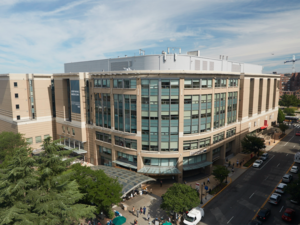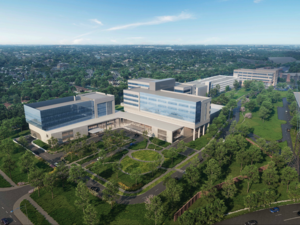
Johnson & Johnson Innovation portfolio company Hibiscus Health Inc. is raising new funding to scale its technology platform — a screening tool for employers to help keep their workers healthy — and refining its business model after its first year.
Hibiscus, which went live last summer, has closed the first $1 million of a total $5 million to position it for growth and push it closer to profitability, founder and CEO Kavi Misri told me. The D.C. entrepreneur led his last local startup to an exit in 2022 and is eyeing a similar path for this venture.
But first his to-do list includes building its sales and marketing team, enhancing its mobile app, completing clinical studies of its tech platform, filing a patent for its intellectual property and running six revenue-generating pilot programs by the end of the year, he said.
Hibiscus intends to secure an additional $4 million in 2025 and would consider opening a larger Series A round the following year because “additional funding may be needed to scale,” Misri said. The new funding would build upon the $1 million it previously raised from angel investors, friends and family.
Hibiscus' software-as-a-service model aims to help employers cut down on health care costs, increase worker productivity and improve general office morale. Its bread and butter: an AI-based, face-scanning technology that helps predict risk of stroke, heart attack, diabetes, hypertension and a host of other conditions. The tech essentially interprets blood flow in the face to collect those biomarkers, via the smartphone’s video camera.
Hibiscus is targeting employers with headcounts greater than 1,000 in a range of sectors, including technology, manufacturing, health care, finance and education.
Participating companies, which may already have wellness programs in place, would give their workers access to the Hibiscus mobile app. Features include a vital signs tracker, a 24/7 chatbot, educational articles and videos, and grocery lists and meal planning, among others.
Hibiscus also counts insurance companies as key customers, now billing for in-network reimbursement with Aetna, Blue Cross Blue Shield, Cigna and United Healthcare, as well as Medicare and Medicaid. It’s attractive for health plans, Misri said, because preventative care leads to better health and, therefore, fewer pricey claims.
The seven-employee company is now hiring sales and marketing personnel to help grow its customer base, he said.
Hibiscus is also cutting bait on initial plans to partner with large physician groups and build a care management team, Misri said. The company “saw minimal traction with patient referrals” and “would rather partner with existing care management companies to deliver clinical care, while we focus on providing the technology to screen and detect health conditions earlier and earlier,” he said.
Hibiscus, based out of JLabs space on Children’s National Hospital’s Research and Innovation Campus in D.C., didn’t see any revenue in its inaugural year but is now generating about $15,000 each month, Misri said. Contracts with health plans drive the bulk of that, while deals with businesses account for the rest. It’s expecting $500,000 in annual recurring revenue by the end of 2024 and projecting $1.8 million for 2025.
Hibiscus was named to Pepperdine University's Graziadio Business School's Most Fundable Companies list of 2024, an accolade that comes with support for startups looking to draw investors, raise money and scale.
Going forward, Hibiscus hopes to adapt the platform to address more health conditions, such as dementia, kidney disease and cancer, Misri said. It also envisions partnering with health systems, technology companies and others “to ensure our tools are widely accessible and integrated into routine health care practices,” he said.
The end goal? To sell the business in a handful of years to a population health management company.
Misri started Hibiscus in July 2023 after receiving a prediabetes diagnosis and quickly experiencing a “fragmented” system for managing and reversing metabolic disease, as he has described it. The D.C. entrepreneur, a Washington Business Journal 40 Under 40 honoree, is also the mind behind Rose Health, a predecessor venture inspired by his own battle with depression. That company, one of our 2021 Startups to Watch, sold in October 2022 to West Coast firm Precise Behavioral Inc.
This story has been updated to reflect that Hibiscus Health has closed its $1 million raise and made Pepperdine Graziadio Business School's Most Fundable Companies list of 2024.




